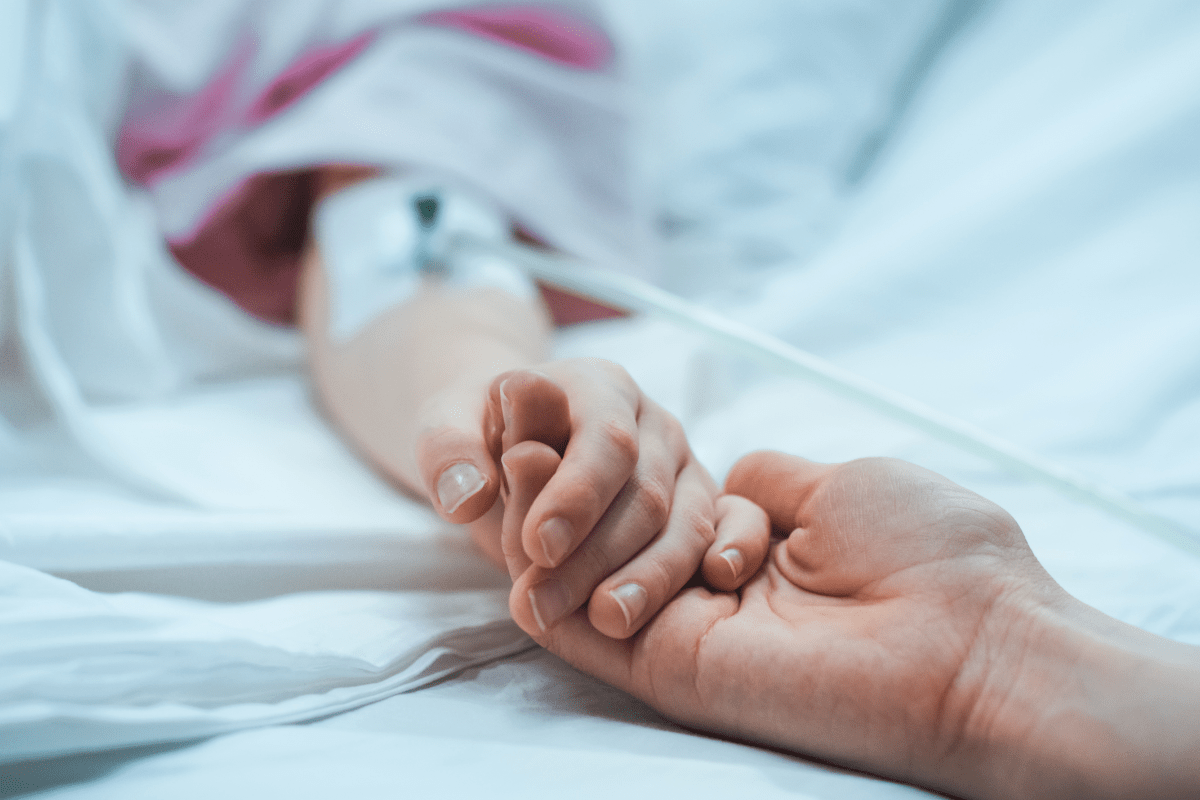Trazodone is a prescription medication primarily used to treat depression, anxiety, and sometimes insomnia. It belongs to a class of drugs known as serotonin receptor antagonists and reuptake inhibitors (SARIs). Trazodone is generally considered safe when taken as prescribed, however, there is a potential for overdose if the medication is misused or taken in excessive amounts.
Can You Overdose on Trazodone?
Yes, it is possible to overdose on trazodone. An overdose occurs when a person takes more than the prescribed or safe amount of the medication, leading to toxic levels in the body. Overdosing on trazodone can be dangerous and potentially life-threatening, with symptoms ranging from mild to severe.
Immediate medical attention is crucial in the event of a trazodone overdose. If you or someone you know feel you may be experiencing these symptoms, immediately dial 911.
Symptoms of Trazodone overdose may include:
- Dizziness
- Nausea
- Vomiting
- Drowsiness
- Difficulty breathing
- Seizures
- Coma
What Can Cause A Trazodone Overdose?
A trazodone overdose can occur if a person takes more than the prescribed or safe amount of the medication. Overdose can happen intentionally, where an individual takes more than the prescribed dose intentionally, often in the context of self-harm or suicide attempts. However, unintentional and accidental overdoses can occur in a number of ways:
- Accidental Overdose: This can happen if a person mistakenly takes too much of the medication, especially if they are taking multiple medications or have cognitive impairments.
- Drug Interactions: Combining trazodone with other medications that depress the central nervous system, such as alcohol, benzodiazepines, or opioids, can increase the risk of overdose.
- Underlying Health Conditions: People with liver or kidney problems may not process the drug as efficiently, leading to higher levels in the bloodstream and potential overdose.

How Much Trazodone is Necessary To Overdose?
Generally, a dose exceeding 600 mg of trazodone in a single intake is considered to be at risk of causing an overdose. However, significant toxicity and potentially life-threatening symptoms can occur at lower doses, especially when combined with other central nervous system depressants like alcohol or other medications.
How Is Trazodone Overdose Treated?
Treatment for trazodone overdose typically involves a combination of supportive care, monitoring, and specific interventions to manage symptoms. Treatment can include but not be limited to:
- Emergency Medical Attention: The first step in treating a trazodone overdose is to call emergency services. Medical professionals need to assess the severity of the overdose and determine the appropriate level of care.
- Gastric Lavage (Stomach Pumping): In some cases, if the overdose is discovered early enough, doctors can perform gastric lavage to remove any remaining trazodone from the stomach. This procedure involves inserting a tube through the mouth or nose into the stomach and flushing it with water to wash out the drug.
- IV Fluids: IV fluids are often provided to maintain hydration and support overall bodily function. Fluids can also help to manage any blood pressure fluctuations caused by the overdose.
- Monitoring Vital Signs: Continuous monitoring of vital signs, such as heart rate, blood pressure, and respiratory rate, is essential. Medical staff will closely watch for any signs of cardiac arrhythmias or respiratory depression, which are potential complications of a trazodone overdose.
- Symptomatic Treatment: Depending on the symptoms presented, additional treatments may be necessary. For example, if seizures occur, anticonvulsant medications may be administered. If breathing is severely impaired, mechanical ventilation might be required.
- Hospitalization: In severe cases, hospitalization in an intensive care unit (ICU) may be necessary for close monitoring and specialized care until the patient is stable.
The prognosis for a trazodone overdose largely depends on the amount taken, how quickly treatment is administered, and whether other substances were involved. With prompt and appropriate medical care, recovery is possible. However, an overdose can have long-term health consequences, so it’s critical to seek help immediately if an overdose is suspected.
Seeking Treatment for Trazodone Abuse
After the immediate care and stabilization of a trazodone overdose, long-term treatment is often necessary to address the underlying issues of trazodone abuse or addiction. The following are the most common treatment options available:
Detox
Detox is the first step in the recovery process for individuals struggling with trazodone abuse. Detox is typically done under medical supervision to manage withdrawal symptoms, which can include anxiety, agitation, sleep disturbances, and other physical symptoms. Medical staff may provide medications to ease the detox symptoms and ensure that the client remains as comfortable as possible. Detox alone is not a complete treatment but a crucial first step before transitioning into further care.
Inpatient Treatment
Inpatient rehab provides a highly structured environment where individuals can focus entirely on their recovery without outside distractions. In inpatient rehab, clients reside at the treatment facility 24/7, away from external triggers and temptations. Inpatient programs offer a comprehensive approach, including individual therapy, group therapy, medication management, and holistic therapies. This level of care is particularly beneficial for individuals with severe addiction, co-occurring mental health disorders, or those who have not succeeded in outpatient programs.
Partial Hospitalization Program (PHP)
A Partial Hospitalization Program (PHP) is the most structured form of outpatient treatment. Clients in a PHP attend treatment sessions during the day, typically for 6-8 hours, but return home in the evenings. PHPs are ideal for individuals who need a high level of care but have a stable and supportive home environment. This program includes many of the same services as inpatient treatment, such as individual and group therapy, medication management, and support for co-occurring disorders.
Intensive Outpatient Program (IOP)
An Intensive Outpatient Program (IOP) offers a flexible treatment option that allows individuals to maintain their daily responsibilities, such as work or school, while receiving intensive therapy. IOPs typically involve several hours of therapy per week, divided into multiple sessions. This level of care is suitable for individuals who do not require the full-time supervision of inpatient treatment but still need structured support to maintain sobriety.
Outpatient Rehab
Outpatient rehab is the least intensive level of care, making it a good option for those who have completed higher levels of treatment or have a milder form of addiction. Outpatient programs usually involve weekly therapy sessions, which can be either individual or group-based. Often, admission to an outpatient level of care requires completion of highest levels of care due to the need for stabilization.
Find Treatment After Trazodone Overdose Today.
If you or a loved one is struggling with trazodone abuse or addiction, it’s important to seek help as soon as possible. At Nashville Treatment Solutions, we offer a range of personalized treatment options designed to meet your unique needs and support your journey to recovery. Whether you need detox, inpatient treatment, or an outpatient program, our experienced and compassionate team is here to guide you every step of the way. Call us now at (615) 234-9425 or verify your insurance today.







